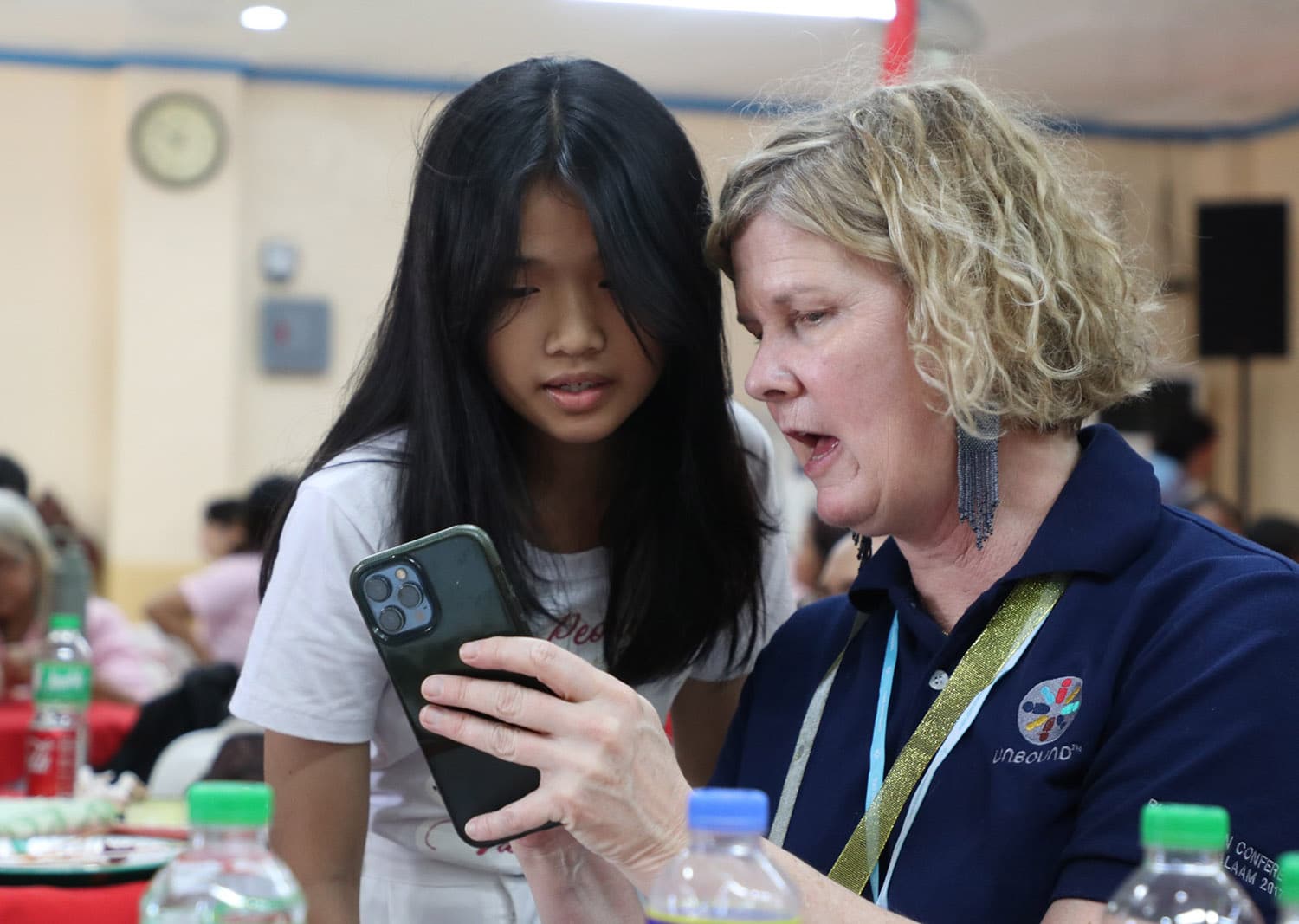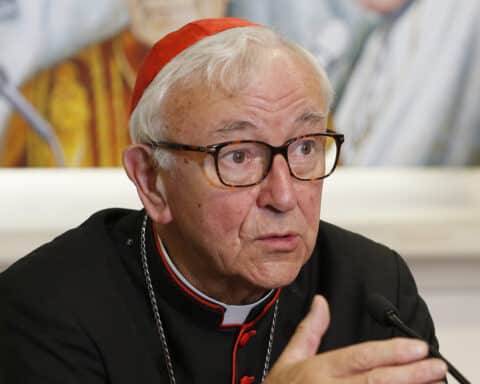(OSV News) — Ashley Hufft is a woman with a mission — and not just as the first woman to become president and chief executive officer of Unbound, an international nonprofit founded by Catholics assisting the poor and marginalized in 17 countries around the globe.
After officially taking up her new post Feb. 21 — she had been serving as Unbound’s interim president and CEO since August 2023 — Huft boldly stated another mission as well. Since Unbound’s 1981 founding — and as of last year — it has sponsored 1 million children, youth and elders.
Hufft wants to reach the next million sponsored people in poverty in a fraction of that time.
“There is an urgency,” Hufft told OSV News. “I think about it in the middle of the night, every night.”
The World Bank has noted the COVID-19 pandemic and the war in Ukraine have led to the biggest increases in extreme poverty since 1990. The Washington-based international lender to developing countries reported over 70 million more people fell into extreme poverty as of 2020 and 570 million people are expected to remain in extreme poverty through 2030.
These sorts of figures daily motivate Hufft, as she works to extend Unbound’s sponsorship model to more and more people in need around the world.
Walking alongside the poor and marginalized
“We are an organization that walks alongside the poor and the marginalized in the world. Our primary way of doing that is through direct financial support — through sponsorship — to a family’s bank account,” Hufft said. “And in line with Catholic social teaching — which is our underpinning, our foundation; honoring the dignity of the person — we let the families decide how to spend that money, for their own goals, their own life path.”
The average amount of monthly sponsorship funding — $40 — is distributed to families through mobile money platforms; that is, virtually.
“Probably one of the most impactful changes on poverty in general across the world in the last 20, 25 years, has been the mobile phone, and mobile money,” said Hufft. “Most of our families in Africa get a cash transfer every month via their mobile phone.”
Mobile phones can cost less than $11 in Kenya, or 1,499 Kenyan shillings — and the small device can radically change a family’s life.
“They get to decide how to use that money to meet their family’s needs. Most of the time, it’s for education, because the sponsored child is a school-aged youth,” Hufft shared. “All the research shows that direct cash transfers into a family’s bank account is more effective in nutrition and education for that family than a large-scale nutrition or education program that you would fund through a larger development organization.”
Missouri upbringing
Raised in southwest Missouri, Hufft’s parents instilled in her strong ideals of inquisitiveness, cultural diversity and helping others.
“There were two values underlying my upbringing,” said Hufft. “One was service, and the other was acceptance of all people.”
The family traveled throughout the world in her youth, sparking a fascination with archaeology and anthropology, which Hufft studied at Harvard University. Completing her undergraduate degree, she taught first grade in Louisiana for Teach for America, before returning to Harvard to earn a law degree. She practiced in both Atlanta and New York, eventually becoming a partner in a law firm.
Move to Kenya
Then, in 2006, came the proposal that changed Hufft’s life.
Economist and public policy analyst Jeffrey Sachs offered Hufft the chance to work with a foreign direct investment project in Kenya. Sachs was heading the plan via the Earth Institute at Columbia University, where he still teaches. Hufft agreed. She took a sabbatical from her law firm, and found herself moving to Kenya.
It was the start of a major career change, from law to international development — a shift that has equipped Hufft to seamlessly blend with just about any population she finds herself among.
“I find it as rewarding and as easy to be with our board of directors as to sit with a group of women in a mother’s group in rural Kenya,” Hufft said, “and to be able to go between worlds, so to speak, is helpful.”
Mothers’ groups, Hufft stressed, are critical to Unbound’s success.
“Most of the families, in the countries where we work, are led by the mothers — and these mothers are really the ones who are directing our work, leading every day,” explained Hufft.
“They join together in mother’s groups — we have 12,500 mother’s groups that are groups of about 30 women that get together to support each other; hold each other accountable to their goals; help each other. They do savings and loan activities; they do community-led projects,” she said. “So the real magic of Unbound starts with the mothers.”
The entrepreneurial spirit of the mothers’ groups has been, Hufft said, an inspiration.
“We have mothers in these groups all across the world who are now saving and giving microloans to each other, based on their own funding,” she shared. “That’s their own money; that’s not additional funding from the sponsors. So there’s a real multiplier effect from our method of sponsorship — starting with the $40 to the family, expanding out to the group, and then the final thing is, these mothers groups look out towards the community, to see what they can do for the community.”
Unbound grants
Unbound “Agents of Change” grants — larger amounts of funding than a monthly sponsorship — enable those closest to the problem to identify community needs, and then design and implement solutions.
“Part of our purpose,” Hufft added, “is to change the world’s view of the poor.”
Grounded in the Gospel call to serve people who are destitute, Unbound has a wealth of experience to share.
“I want us to have a seat at the table to contribute the knowledge that we’ve gained over 43 years,” said Hufft. “The World Bank, the United Nations — a lot of the work that they do at a country level, or in the capitals, really doesn’t have data and reflections of everyday families.
“We’re working with 275,000 families right now, and have worked with over a million,” Hufft noted. “So the information that we have in terms of what works with people — with each individual family — I think is very valuable, and can contribute to what works and what doesn’t work, and solutions in poverty alleviation programs.”
That’s not to discount the macro versus the micro, Hufft emphasized. It’s just different, in development terms.
“There’s a real place in the world for an organization like Unbound — that a family can rely on an amount of income every month,” Hufft said. “For some of these families that are living in extreme poverty on a couple of dollars a day, having an extra $30 in their bank account every month gives them that extra little boost; that extra little sense of empowerment.”
“And then when you bring them together with their group and the support of Unbound social workers, and they start to set their goals; see achievement of their goals; their children are getting educated; they’re supporting each other,” Hufft said, “you start to see real generational change in these families.”





